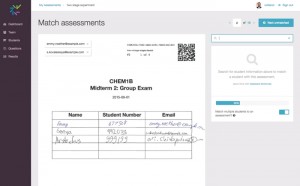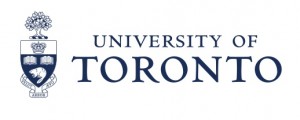Crowdmark successfully pilots two-stage exams in North America

TORONTO, Oct. 21, 2015 – Working with five leading universities in North America during 2014-15, Crowdmark Inc., a collaborative online grading and analytics platform, has demonstrated the benefits and advantages of using two-stage examinations in a number of undergraduate programs in post-secondary institutions across the world.
Crowdmark has worked with universities to introduce two-stage exams as a way to integrate collaborative learning and assessment into the traditional exam format. In a two-stage exam, students individually complete the exam and then, working in groups of three to four, immediately complete the exam again. This method provides students with immediate feedback through discussion with their peers as they deliberate the most correct response. The two-stage exam provides feedback on individual performance while increasing students’ engagement and comprehension of course content.
James Colliander, Crowdmark Founder/CEO and Professor of Mathematics at the University of British Columbia is encouraged by the reception two-stage exams have received at universities in North America.
“The experiments with two-stage exams last spring were very informative and helped shape our platform to support a new and emerging assessment scenario,” says Colliander. “Also with feedback from our customers, we made elegant improvements allowing Crowdmark to be used for other assessment types including lab reports and group projects.”

